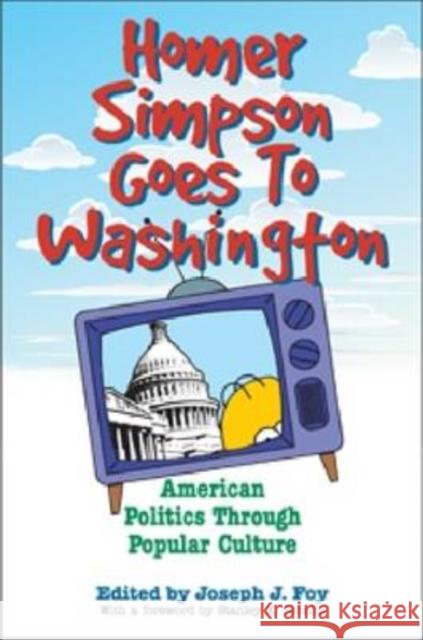Homer Simpson Goes to Washington: American Politics Through Popular Culture » książka
Homer Simpson Goes to Washington: American Politics Through Popular Culture
ISBN-13: 9780813125121 / Angielski / Twarda / 2008 / 282 str.
The modern landscape of American entertainment is filled with commentary on the state of the union. Many people now get their news from The Daily Show and The Colbert Report instead of Fox or CNN, and satirical political films such as Bulworth and Wag the Dog resonate with audiences and reviewers alike. The cartoon sitcom The Simpsons has used American politics to shape its plotlines since its debut in 1989, and many Americans view the current war on terror through the eyes of Jack Bauer, the fictional hero of the controversial action show 24. Politics has always influenced entertainment, and Americans increasingly use popular culture to make sense of the U.S. political system and current debates. There is, however, another facet to the relationship between politics and popular culture: education. Exposure to political ideas through television, film, and music generates interest and increases knowledge among viewers and listeners. The presentation of political ideas in popular media often begins a dialogue through which citizens develop opinions about and interest in political ideas. The resulting discussions of politics and civic life have a significant value as a means to educate Americans about their government. In Homer Simpson Goes to Washington: American Politics through Popular Culture, Joseph J. Foy and other contributing scholars offer a variety of perspectives on politics through the framework of popular culture. From the classic film Mr. Smith Goes to Washington to the cutting-edge television program Chappelle's Show, the authors use a wide spectrum of entertainment media to explain the complexities of U.S. politics and how audiences engage them. The authors not only explain fundamental concepts such as civil rights, democracy, and ethics but also examine common assumptions about government and explore the use of controversial ideas in entertainment. Jennifer J. Hora uses The West Wing to introduce the heroic-president model of executive leadership, and Dean A. Kowalski presents V for Vendetta as a vehicle for understanding American political thought. Other essays test the impact of entertainment news on political knowledge and investigate the presentation of broadcast news in film to determine how well the media serves the people. The book also looks at folk music's ability to popularize protest and offers an insightful commentary on social movements in U.S. history. Popular culture and politics have never been so intertwined in the American consciousness as they are today, with films, television shows, and songs contributing to the debate over the promises versus the realities of democracy. As political knowledge becomes increasingly valuable, Homer Simpson Goes to Washington explains how popular culture can actually help connect people to their government.











